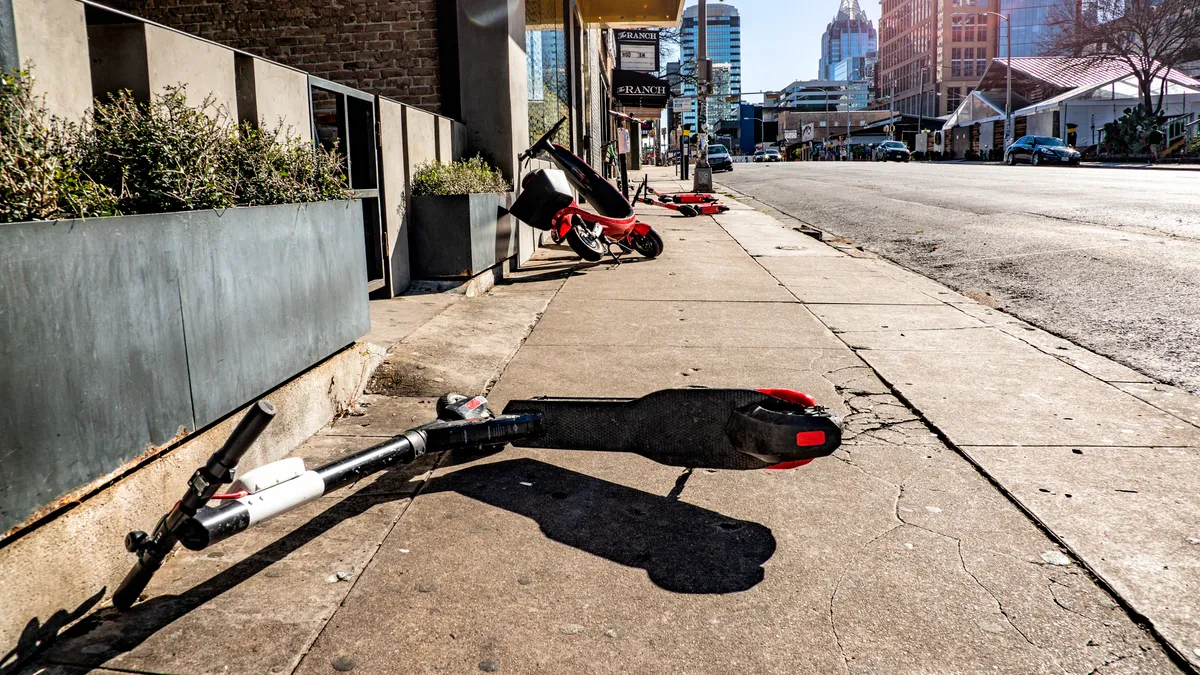Dive Brief:
- U.S. cities are losing 36 million trees a year according to a new study from the U.S. Department of Agriculture (USDA) Forest Service.
- The study found tree coverage in urban areas dropped from 40.4% to 39.4% between 2009 and 2014, while impervious cover such as asphalt and concrete grew from 25.6% to 26.6% during the same period.
- The loss of 36 million trees is about 175,000 acres, with the loss of benefits from urban forests estimated at $96 million.
Dive Insight:
The loss of trees on such a scale should worry city dwellers, as they help improve air quality as well as run-off of rainwater, which benefits urban areas prone to flooding. Earlier this year, another Forest Service study found the need for urban trees will only intensify as more people move to cities. It estimated that land in urban environments will more than double between 2010 and 2060, and that green spaces and urban forests also need to expand.
Researchers and advocates warned that continued losses in the future will damage cities further, with the trends indicating that urban trees in 45 states have seen a net overall decline while only city trees in Alaska, Minnesota and Wyoming have remained stable. “It’s worrying that trends show so many are being lost in US cities when leading cities worldwide are experiencing the many benefits of investing in trees as part of their plans to improve urban life,” Paul de Zylva, senior nature campaigner for Friends of the Earth, told The Guardian.
The Forest Service hopes that these findings can spark new conversations among city leaders about the future of their tree canopies, especially as more and more cities tout their environmentally-friendly credentials. “Understanding where these losses are occurring and the magnitude of change will hopefully facilitate informed discussions on how much tree cover communities want to have in the coming years, and on the roles of urban trees in sustaining environmental quality and human health and wellbeing,” David Nowak, co-author of the study, told The Guardian.











